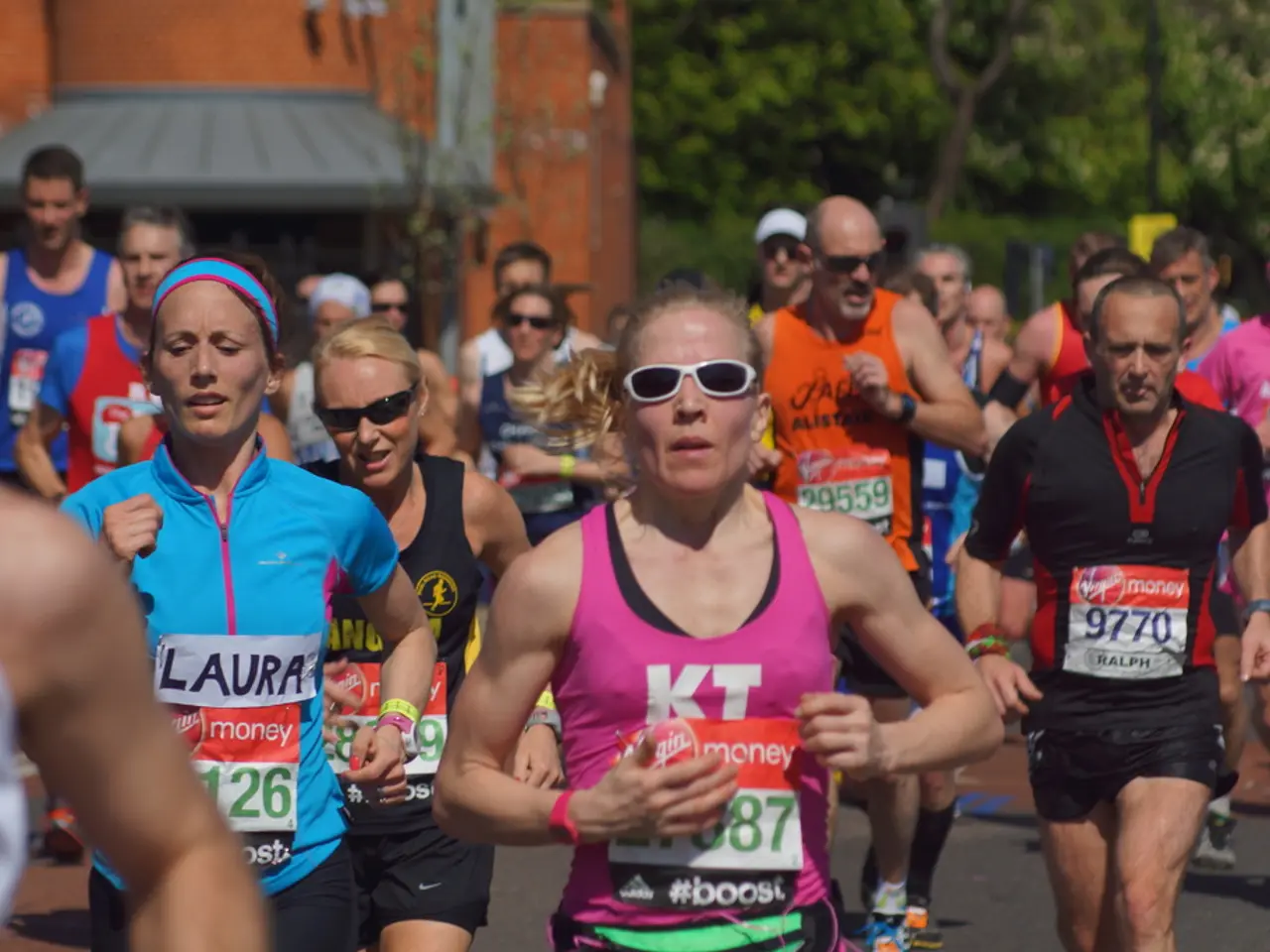Recovery Timeframe and Suggestions for Concussions:
In the realm of traumatic brain injuries (TBIs), concussions are a common occurrence, often resulting from head trauma due to falls, blows, or shaking. These injuries can have a wide range of symptoms, including nausea, headaches, problems with vision and balance, and changes in sleeping habits, among others.
When it comes to recovery, it's crucial to approach the process with care and follow the advice of medical professionals. People should consult with their doctor before resuming work, driving, making important decisions, traveling in an airplane, resuming athletic activities, or drinking alcohol.
The dietary approach to concussion recovery centres around a nutrient-dense, balanced diet, with a particular emphasis on brain-supportive nutrients. This includes antioxidants, B vitamins, and compounds found in foods like the Lion's Mane mushroom, known for promoting nerve growth factor activity and aiding brain cell regeneration.
Adequate nutrition and hydration are key to supporting brain healing and overall recovery. A balanced diet rich in fruits, vegetables, whole grains, and lean proteins provides essential nutrients for optimal brain repair and function. Additionally, vitamins B12, B6, B9 (folate), and B12 together promote mood balance, mental energy, memory, and long-term brain health.
Furthermore, staying hydrated supports the metabolic processes necessary for brain recovery. On the other hand, alcohol, recreational drugs, and sleep medications should be avoided during recovery as they can impede healing and worsen symptoms.
Proper sleep and a gradual return to physical and cognitive activity under medical supervision also play a significant role in concussion recovery. A healthful diet, combined with these factors, can help speed up the recovery process.
It's important to note that most people can expect to make a complete recovery from a concussion within a month. However, in rare cases, recovery can take longer than 6 weeks, known as post-concussion syndrome. Symptoms of post-concussion syndrome can last for more than 6 weeks and affect an estimated 20% of people.
Factors that can interfere with concussion recovery include a history of concussions, pre-existing neurological problems, and age. It's essential to remember that each concussion is different, and the path to recovery will vary for every individual.
In summary, taking the injury seriously, getting plenty of rest, maintaining a healthful diet, taking time off from sports, using ginger products for nausea relief, reducing screen time, and being patient during the healing process are all crucial steps in the concussion recovery journey. Always remember, seeking medical care for a thorough evaluation is of utmost importance when dealing with a concussion.
- In the realm of medical-conditions, chronic-kidney-disease and other chronic-diseases might require long-term management, similar to how a concussion needs a careful and sustained approach to recovery.
- Scientific studies have shown the potential benefits of CBD in managing some mental-health issues, but it's crucial to consult with healthcare professionals before exploring CBD as a treatment option.
- A balanced diet rich in fruits, vegetables, whole grains, and lean proteins, emphasizing brain-supportive nutrients, is essential for health-and-wellness, not just during concussion recovery but in our everyday lives.
- In addition to fitness-and-exercise and mental-health practices, a nutrient-dense diet plays a crucial role in overall well-being and can help prevent accidentandfalls that might lead to traumatic brain injuries like concussions.
- Nutrition and hydration, together with avoiding alcohol, recreational drugs, and sleep medications, are vital for brain healing and recovery, while maintaining a healthful lifestyle can contribute to the prevention of various health-related problems, including chronic-diseases.




